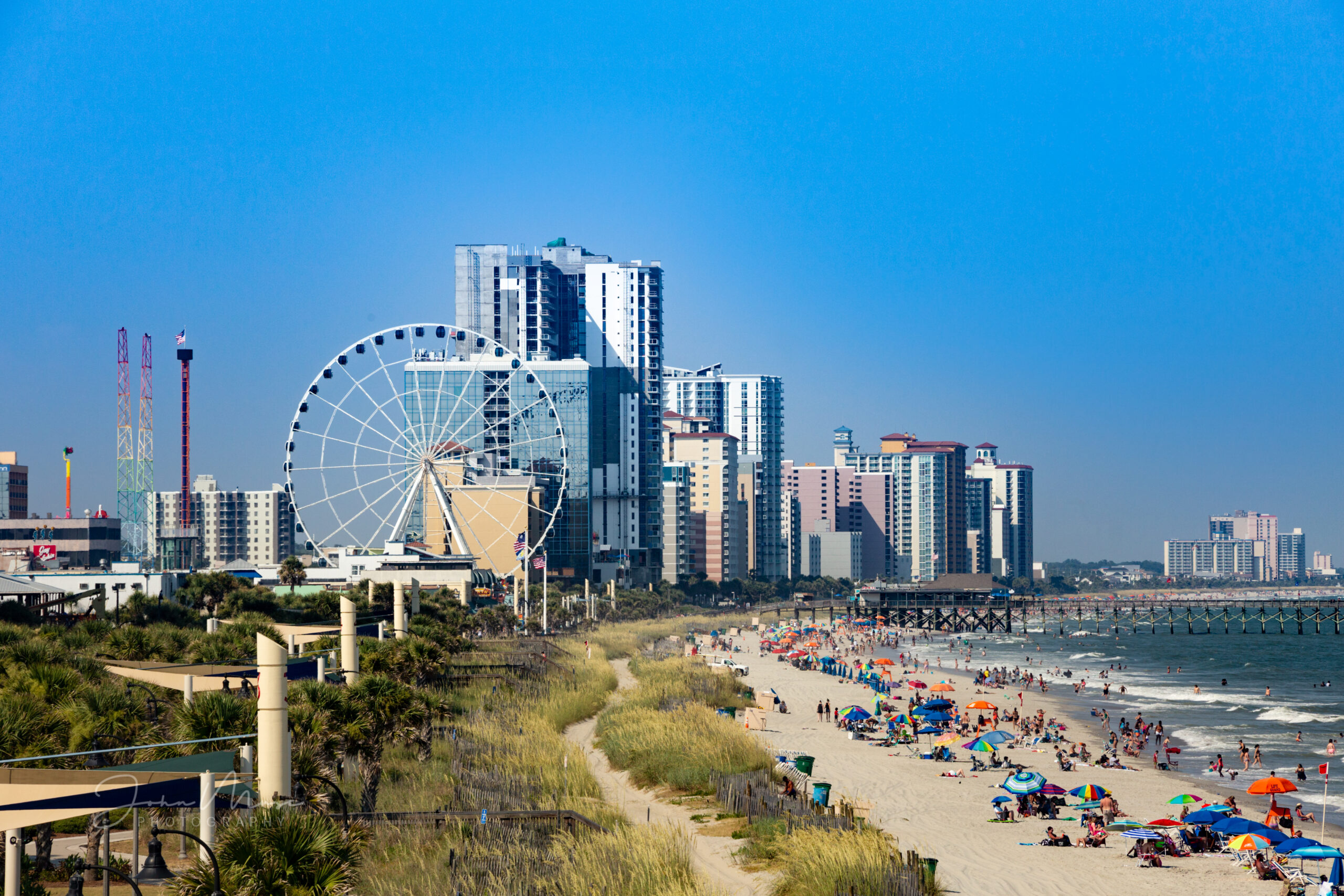How Summer Tourism Impacts Property Values along the Grand Strand as well as Coastal North Carolina.
We are no stranger to the surge of visitors that flood the Grand Strand every summer. With miles of sandy shoreline, a vibrant nightlife, and family-friendly attractions, it’s no surprise that tourism is a major economic driver in this region. But beyond boosting local businesses, did you know that summer tourism can also have a noticeable impact on real estate values, especially near the coast?
As real estate experts here along the Grand Strand we often get questions from property owners and investors about how tourism affects home values. Let’s take a closer look.
Short-Term Rental Demand Drives Investment
The demand for short-term vacation rentals skyrockets in the summer months. Platforms like Airbnb and VRBO are filled with listings, and homeowners who rent out their properties can make a significant seasonal income. As a result, many investors and second-home buyers target areas close to the beach, golf courses, and entertainment districts.
This surge in demand pushes up property values in tourist-heavy zones, particularly condos and homes with ocean views or quick beach access. Appraisals reflect this trend when comparable sales show rising prices driven by income potential.
Seasonal Sales Spikes Affect Appraisal Timing
Real estate sales along the Grand Strand typically see a spike in activity between late spring and early fall. This period of higher transaction volume provides appraisers with more comparable sales (or “comps”), which can influence appraised values. However, it’s important to remember that appraisals are a snapshot in time, and values during the busy summer months can look quite different than in slower seasons.
If you’re refinancing or selling during the summer, the timing could work in your favor—assuming the comps support it.
Tourism Can Highlight Desirability of Neighborhoods
Tourists flock to areas with walkable access to restaurants, shopping, and entertainment. As these areas grow in popularity, they often see increased infrastructure investment and development. Over time, this boosts the perceived desirability and long-term value of nearby neighborhoods.
For example, areas like Calabash, Market Common, North Myrtle Beach, and the Boardwalk district have all seen growth in value partly due to tourism-fueled popularity.
But It’s Not All Positive: Noise, Traffic & HOA Restrictions
While tourism often drives value up, it can also bring challenges that affect appraisals in certain areas. Some buyers are hesitant to purchase in neighborhoods that experience heavy summer traffic, noise, or lack of parking during peak tourist season. Additionally, some homeowners’ associations (HOAs) are starting to restrict short-term rentals, which may impact on the income potential and, in turn, the value of certain properties.
Appraisers take these factors into account when selecting comps and assessing marketability.
Final Thoughts
Summer tourism is a powerful force along the Grand Strand real estate, and its impact on property values is very real. Whether you’re a homeowner, buyer, or investor, understanding how tourism trends shape the market can help you make smarter decisions.
If you’re thinking about buying, selling, or simply want to know your property’s value in today’s market, a professional appraisal provides the most accurate insight—especially in a dynamic, tourism-driven market like ours.
Need an appraisal along Coastal South Carolina or North Carolina?
We’re happy to help. Contact us today to schedule your Commercial, Residential or investment property appraisal.



